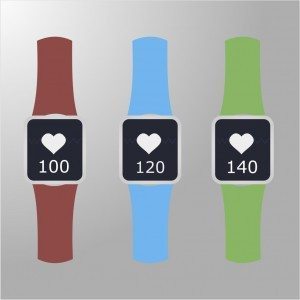 There are more and more wearable devices that collect a variety of health data, and other health records are kept electronically. More often than not, the people whose data it is don’t actually have access. There are very important issues to consider, and you could use this for a conversation with your students, and in assignments.
There are more and more wearable devices that collect a variety of health data, and other health records are kept electronically. More often than not, the people whose data it is don’t actually have access. There are very important issues to consider, and you could use this for a conversation with your students, and in assignments.
On the individual level, questions such as
- Who should own your health data?
- Should you be able to get an overview of who has what kind of your data? (without fuzzy vague language)
- Should you be able to access your own data? (directly out of a device, or online service where a device sends its data)
- Should you be able to request a company to completely remove data from their records?
For society, questions like
- Should a company be allowed to hoard data, or should they be required to make it accessible (open data) for other researchers?
A comment piece in this week’s Nature entitled “Lift the blockade on health data” could be used as a starting point a conversation and for additional information:
http://nature.com/articles/doi:10.1038/535345a
Technology titans, such as Google and Apple, are moving into health. For all the potential benefits, the incorporation of people’s health data into algorithmic ‘black boxes’ could harm science and exacerbate inequalities, warn John Wilbanks and Eric Topol in a Comment piece in this week’s Nature. “When it comes to control over our own data, health data must be where we draw the line,” they stress.
Cryptic digital profiling is already shaping society; for example, online adverts are tailored to people’s age, location, spending and browsing habits. Wilbanks and Topol envision a future in which “companies are able to trade people’s disease profiles, unbeknown to them” and where “health decisions are abstruse and difficult to challenge, and advances in understanding are used to aggressively market health-related services to people — regardless of whether those services actually benefit their health.”
The authors call for a campaigning movement similar to the environmental one to break open how people’s data are being used, and to illuminate how such information could be used in the future. In their view, “the creation of credible competitors that are open source is the most promising way to regulate” corporations that have come to “resemble small nations in their own right”.

The program reduces my planning time as I only have to plan and research for one integrated unit.
Trent Perry, Teacher